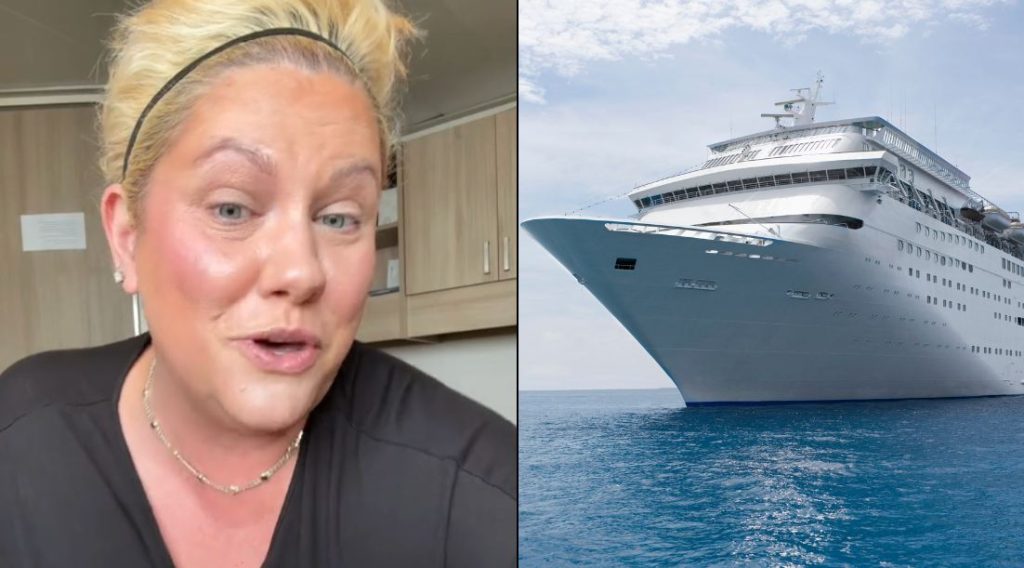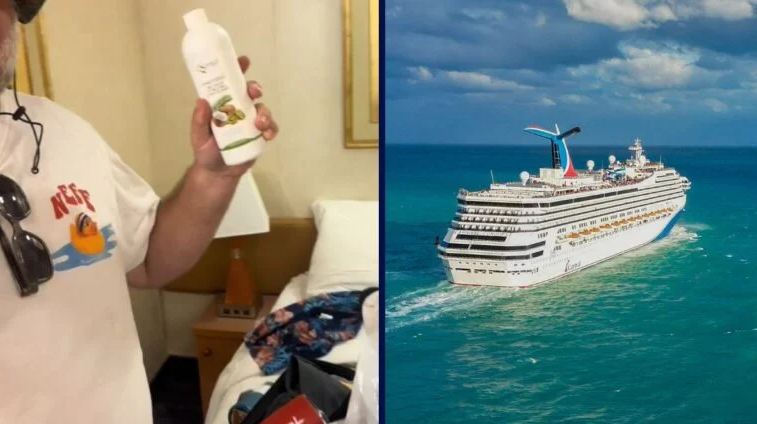TikTok user Courtney Murley (@courtneynicolemurley) posted a video aboard Carnival Conquest teasing that she had successfully smuggled alcohol on board—and encouraging over 400,000 views. Her post captured attention—and not just among amused viewers. In the comment section, multiple users warned of serious consequences:
“You post that stuff they will banned you from cruising with them.”
“There’s a screenshot of carnival banning you from future sailings on Facebook. Is that real?”
Lifetime Ban Confirmation
Shortly after, Murley shared a screenshot of what appeared to be an official letter from Carnival Cruise Line. It stated she was “banned for life” from sailing with them due to her March 31, 2025 incident aboard the Carnival Conquest, and specifically referenced her public disclosure of alcohol smuggling . According to the letter, any future booking attempts would be cancelled and deposits forfeited. Carnival’s ambassador, John Heald, later revealed that the company monitors social media for such rule-breaking “hacks.” Heald noted that videos where guests showcase booze smuggling tactics—like hiding liquor in tubes or hairbrushes—are regularly reported to the cruise line for action.

The Plot Twist
Murley doubled down in follow-up videos, claiming she never actually smuggled any alcohol. Instead, she said she “faked the whole thing” by filling containers with juice, purely to capture views. She asserted that Carnival wrongly penalized her for a crime she didn’t commit, insisting she “did not smuggle alcohol— not one ounce” She demanded an apology and even floated the idea of legal action:
“Can I get an apology, Carnival? … we did not break a rule.”
Broader Implications
This incident signals a broader crackdown by Carnival Cruise Line. The company has reportedly added over 20 passengers to its “Do Not Sail” list in recent months—not just for smuggling tips, but also due to on‑board fights and other unacceptable behavior. Cruise watchdogs note that boasting about illicit behavior on social media makes offenders easy targets. As Heald emphasized, monitoring platforms like TikTok allows Carnival to enforce bans swiftly and thoroughly—deterrents intended to protect safety and uphold policy.
A Cautionary Tale for Content Creators
This situation serves as a warning for anyone considering posting “cruise hacks” online. Whether real or staged, content that promotes rule-breaking may lead to serious, long-term consequences—like being barred from cruising and left without refund options, even for future reservations.

Conclusion
In today’s digital age, the line between entertainment and consequences is thinner than ever. Courtney Murley’s experience shows that even a seemingly harmless TikTok can lead to serious real-world outcomes—especially when it involves large companies with strict policies like Carnival Cruise Line. Whether her stunt was real or staged, the cruise line treated it as a violation of their rules and acted accordingly. This incident is a powerful reminder that social media content isn’t just seen by followers—it’s also monitored by corporations, authorities, and enforcement teams. Posting pranks or so-called “travel hacks” can backfire quickly, especially when they revolve around deception or rule-breaking. In the end, no viral moment is worth losing future travel opportunities—or facing public embarrassment and legal threats. For future travelers and creators alike, the message is clear: think before you post. What might seem like a funny video today could close doors tomorrow.

















